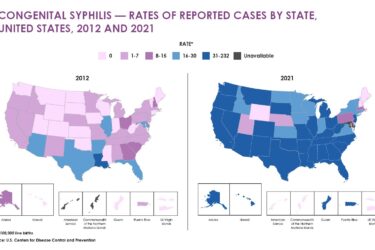
About 60 million Americans depend upon Medicare for their health care coverage. But the national health insurance program for retired and disabled people has never covered routine dental services. The gap represents a significant barrier to necessary care for a growing segment of the country’s population, experts say.
An estimated 65% of beneficiaries – nearly 37 million people on Medicare — are dentally-uninsured, according to an issue brief from the Henry J. Kaiser Family Foundation published this spring.
Nearly half of them are staying away from the dentist. Without timely preventive and restorative treatments, oral infections including caries and periodontal disease can progress, resulting in pain, tooth loss, systemic complications and costly emergency room visits. Oral cancers and other diseases and conditions that might be detected during a dental exam can go undiagnosed.
In one recent year, 49% of Medicare beneficiaries did not get an annual dental visit, Kaiser found. Minorities were most likely to miss out on dental services. An estimated 71% of black beneficiaries and 65% of Hispanic beneficiaries went without care, compared to 43% of white beneficiaries.
For many, the lack of money to pay out of pocket for care complicates the search for services. Ten percent of all Medicaid beneficiaries did not go to the dentist because they could not afford the care, the Kaiser researchers found.
Seven in 10 Medicare beneficiaries living on incomes of less than $10,000 per year stayed away from the dentist, compared with 27% of those with incomes over $40,000 a year, they noted.
Meanwhile, a significant number of Medicare beneficiaries who paid out-of-pocket for care assumed considerable costs.
“Nearly one in five Medicare beneficiaries who used any dental services spent more than $1,000,” the brief noted.
While almost two-thirds of all people on Medicare had no dental coverage, the remaining 35% of beneficiaries obtained oral health benefits through Medicare Advantage plans, Medicaid and private plans, the Kaiser report authors said.
But coverage is no guarantee against additional expenses, the researchers observed.
“Even with dental insurance, older adults can face significant out-of-pocket costs for their dental care,” they noted.
Interest in including dental coverage under Medicare continues to percolate. Want to learn more? Check out this AHCJ tip sheet.







